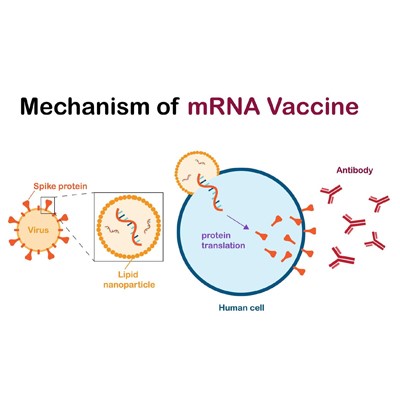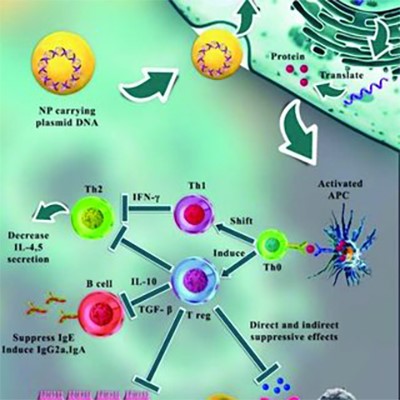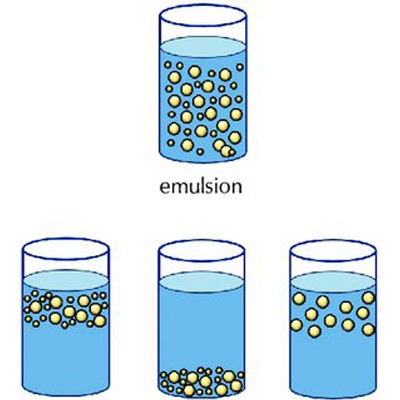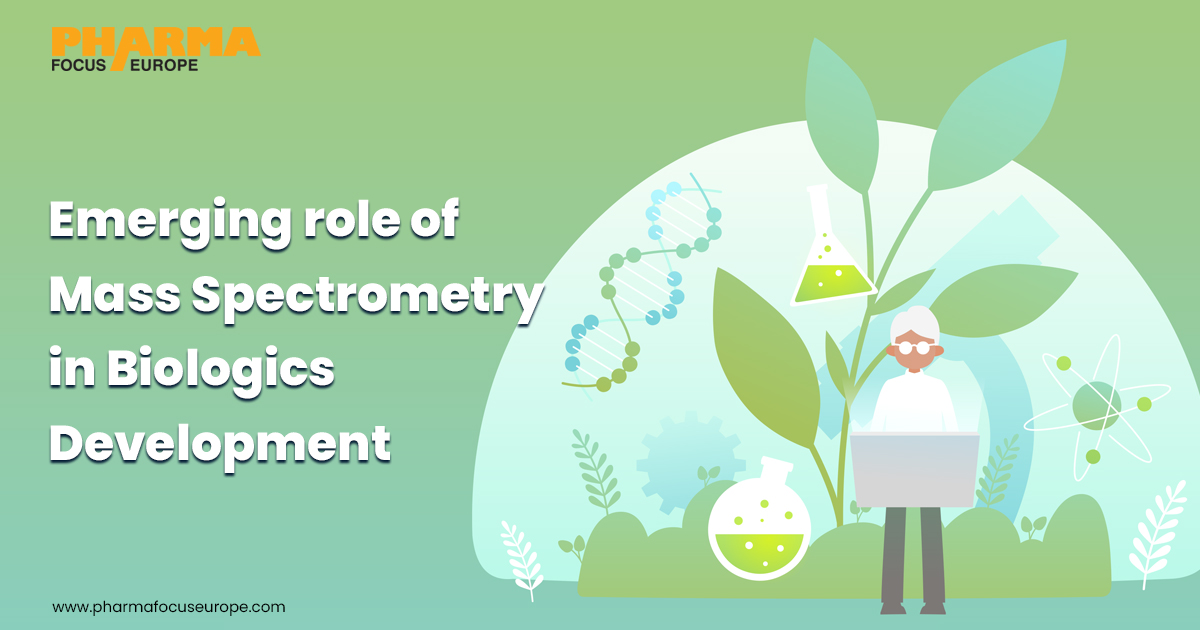 Get SEO-Optimized Articles – Written for Humans, Loved by Google!
Get SEO-Optimized Articles – Written for Humans, Loved by Google!
Advancements in Vaccine Development: A Focus on Immunization Strategies
Written by divyaochre » Updated on: June 17th, 2025

Recent breakthroughs in vaccine development are shaping the future of immunization. mRNA vaccines like Pfizer-BioNTech and Moderna revolutionize the field by instructing cells to produce viral proteins, ensuring adaptability to new variants. Personalized vaccines, nanotechnology, virus-like particles, AI, and machine learning optimize efficacy. CRISPR technology refines gene editing for safer vaccines, while continuous bioprocessing enhances efficiency. Synthetic biology allows precise design, and systems biology decodes immune responses. mRNA's versatility extends beyond infectious diseases. Addressing vaccine hesitancy and navigating ethical considerations are crucial for sustainable progress, and charting a course toward a resilient future.
Vaccines play a crucial role in preventing and managing infectious diseases, significantly contributing to the preservation of numerous lives worldwide. Amidst the complexities presented by emerging pathogens and the persistent demand for enhanced vaccine effectiveness, the pharmaceutical industry is experiencing remarkable progress in vaccine development. This article explores recent breakthroughs and dynamic strategies that are molding the contours of immunization.

1. mRNA Vaccines: Revolutionizing the Field

One of the most groundbreaking developments in recent years has been the advent of mRNA vaccines. The success of COVID-19 vaccines, such as Pfizer-BioNTech and Moderna, has demonstrated the potential of this technology. Unlike traditional vaccines, which use weakened or inactivated viruses, mRNA vaccines instruct cells to produce a viral protein, triggering an immune response. This approach allows for faster development and adaptability to new variants, marking a paradigm shift in vaccine design.
2. Personalized Vaccines: Tailoring Immunity

The concept of personalized medicine is extending to vaccines, aiming to enhance individual immune responses. Researchers are exploring ways to tailor vaccines based on a person's genetic makeup, age, and overall health. This personalized approach holds promise for increased efficacy and reduced side effects, potentially revolutionizing how we vaccinate diverse populations.
3. Nanotechnology in Vaccine Delivery

Nanotechnology is playing a crucial role in improving vaccine delivery and efficacy. Nanoparticles can serve as carriers for vaccine components, enhancing stability and ensuring targeted delivery to immune cells. This innovation not only improves the immune response but also allows for the development of novel adjuvants and formulations, optimizing vaccine performance.
4. Virus-Like Particle Vaccines

Virus-Like Particles (VLPs) emulate the structural characteristics of viruses but do not carry genetic material, establishing them as a secure and efficient foundation for vaccines. Notably, VLP vaccines have demonstrated effectiveness in thwarting diseases like HPV and hepatitis B. Their capacity to trigger robust immune responses without the inherent risk of causing the actual disease positions VLPs as a highly promising avenue for creating vaccines targeting diverse pathogens.
5. AI and Machine Learning for Vaccine Design

Utilizing artificial intelligence (AI) and machine learning is progressively essential in expediting the vaccine development process. These advanced technologies systematically analyze extensive datasets to predict potential vaccine candidates, comprehend immune responses, and identify optimal formulations. By optimizing the discovery phase, AI has the potential to significantly reduce the time and resources required for introducing new vaccines.
6. Next-Generation Adjuvants

Adjuvants, added to vaccines to boost the body's immune response, are a focal point in vaccine research. The development of next-generation adjuvants is a significant focus. These innovative compounds have the potential to trigger more vigorous and precisely targeted immune reactions, offering the possibility of enhanced vaccine efficacy, particularly in populations with compromised immune systems.
7. Global Collaboration and Vaccine Access

The importance of global collaboration in vaccine development has been underscored by the COVID-19 pandemic. Initiatives like COVAX aim to ensure equitable access to vaccines worldwide. Collaborative efforts not only facilitate knowledge-sharing but also enable a more coordinated response to emerging threats, emphasizing the interconnected nature of global health.
8. CRISPR Technology in Vaccine Research

CRISPR-Cas9, known for its gene-editing capabilities, is making waves in vaccine research. Scientists are leveraging CRISPR to precisely manipulate the genetic material of pathogens, creating attenuated or modified strains for vaccine development. This technology allows for targeted modifications that enhance the safety and effectiveness of vaccines, offering a revolutionary approach to combating infectious diseases.
9. Continuous Bioprocessing for Vaccine Manufacturing

Traditionally, vaccine manufacturing has relied on batch processes, which can be time-consuming and resource-intensive. Continuous bioprocessing is emerging as a more efficient alternative, allowing for the continuous production of vaccines without the need for frequent interruptions. This streamlined approach increases scalability and reduces production costs, paving the way for more accessible and affordable vaccines.
10. Synthetic Biology for Vaccine Innovation

Synthetic biology encompasses the design and assembly of biological components to achieve new functions. In the realm of vaccine development, this methodology allows for the generation of synthetic viruses or virus-like particles with predetermined attributes. Through meticulous engineering of these constructs, researchers can fine-tune vaccine candidates to achieve heightened efficacy and safety, introducing a degree of control that traditional methods cannot match.
11. Decoding Immune Responses with Systems Biology

Advancements in systems biology are unraveling the complexities of the human immune system's response to vaccines. Researchers use large-scale data analysis to understand how different components of the immune system interact with vaccine antigens. This knowledge is crucial for designing vaccines that elicit robust and long-lasting immune responses, contributing to the development of more effective and durable immunization strategies.
12. mRNA Beyond Infectious Diseases: Expanding Applications

While mRNA technology initially gained prominence in the context of infectious disease vaccines, its applications are expanding. Researchers are exploring the potential of mRNA in cancer vaccines, allergy treatments, and even as a platform for therapeutic protein production. The versatility of mRNA technology positions it as a transformative force not only in preventing infectious diseases but also in revolutionizing various aspects of medicine.
13. Addressing Vaccine Hesitancy: A Social Perspective

In addition to technological advancements, addressing vaccine hesitancy is a critical aspect of immunization strategies. Understanding the social, cultural, and psychological factors influencing vaccine acceptance is essential for developing targeted public health campaigns. By fostering trust and communication, pharmaceutical companies can contribute to increased vaccine uptake, ensuring the widespread success of immunization programs.
14. Challenges and Ethical Considerations in Vaccine Development

While the landscape of vaccine development is marked by progress, it is not without challenges. From ethical considerations surrounding genome editing to ensuring equitable vaccine distribution, stakeholders must navigate complex issues. Examining and addressing these challenges head-on is crucial for building a sustainable and responsible future for vaccine development.
Conclusion: Charting the Course for Future Success
As we wrap up our exploration of progress in vaccine development, it is clear that we are on the brink of a transformative era. The integration of state-of-the-art technologies, alongside a dedication to global collaboration and ethical considerations, is molding the trajectory of immunization. Through a commitment to innovation, tackling challenges head-on, and prioritizing accessibility, the pharmaceutical industry is steering towards a world where effective vaccines are not just reactive measures in times of crises but proactive safeguards for public health. The ongoing journey of discovery and advancement in vaccine development holds the promise of a more luminous and resilient future for humanity.
Visit: https://www.pharmafocusamerica.com/articles/advancements-in-vaccine-development-a-focus-on-immunization-strategies
Visit: https://www.pharmafocusamerica.com/articles/advancements-in-vaccine-development-a-focus-on-immunization-strategies
Note: IndiBlogHub features both user-submitted and editorial content. We do not verify third-party contributions. Read our Disclaimer and Privacy Policyfor details.
Copyright © 2019-2025 IndiBlogHub.com. All rights reserved. Hosted on DigitalOcean for fast, reliable performance.

















